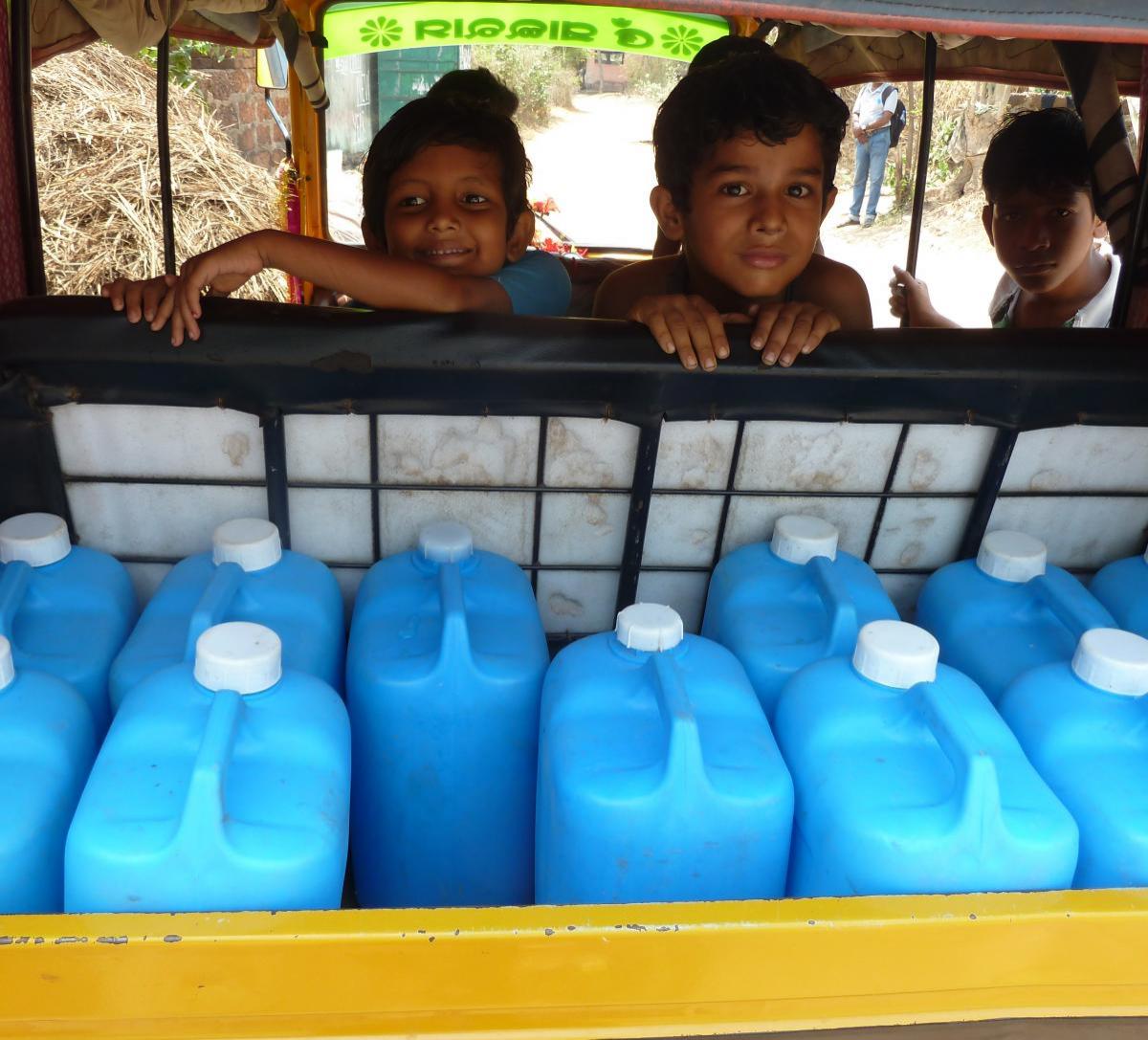An enabling environment will stimulate financiers to invest in Safe Water business.
Published on: 04/10/2017

This blog has been co-authored by Vera van der Grift.
Sustainability of safe water businesses is a real issue. Subsidies are distorting markets, undermining sustainable market creation and business viability for safe water products such as chlorine flasks. Development institutions, governments, NGOs and philanthropists provide products or services for the poor either free of cost or they are highly subsidised. If for example free chlorine tablets are distributed, there is no need to buy them, no incentive to sell them, and consequently, they will not be available when needed. The results (of distorting subsidies) are destroyed or inexistent markets, no emerging customer base, wrong product perceptions and unsustainable supply chains, especially in the safe water sector. An international NGO in Tanzania, for example, found that when bio-sand filters were given for free, they were not used. It was reported that use increased after they began selling the filters.
Although little research has been done on the specific enabling environment for safe water businesses focusing on the Bottom of the Pyramid (BoP), there is some knowledge about the enabling environment for Household Water Treatment and Storage (HWTS) products and “inclusive businesses”. Inclusive business models try to find synergies between sustainable development goals and a company’s core business operations. They aim to deliver socio-economic benefits for communities through market-based solutions. For example by offering goods, services, and income opportunities by integrating men and women at the BoP as consumers, suppliers, retailers or distributors in their core business operations, on a commercially viable basis. Inclusive businesses models can:
Governments can stimulate inclusive safe water business models by providing an enabling environment with laws, regulations and procedures. Setting up a framework for safe water business will help business to access to finance. As without an enabling environment financiers consider it too risky to invest in safe water businesses. The World Bank Group Enterprise Survey shows that for small and medium enterprises in general, ‘access to finance’ tops the list of constraints faced across the world. (IFC, 2013) Especially businesses in developing countries often lack access to impact financing, and conventional financiers perceive these new businesses as risky.
There is a general agreement on the need for safe water products in order for every person to enjoy their human right to safe water. In a country like Guinea Conakry for example, water is broadly available, but it is often of very poor quality. In Guinea Conakry, 87% of drinking water is contaminated between its source and the actual point of use. Household water treatment and safe storage (HWTS) have a huge potential to reduce the burden of water-related diseases such as Cholera and in the case of Guinea Conakry recently Ebola.
Opinions on the role of the government in safe water business in the recent discussion at the World Water week 2017 could not be more diverse, thoughts ranged from; governments need to set tariffs for safe water products to no government involvement at all if you want businesses to get involved.
Governments should play a key role in enabling private companies to get involved for instance by creating a (financial) infrastructure, setting up a benefiting regulatory framework and providing information about the importance of drinking safe water. It is the government’s task to establish conducive rules and regulations. Governments can:
Without a functioning system, financiers will never invest, it is too risky. In a survey of 37 businesses serving the poor in Asia, Africa and Latin America, it was found that there are three main constraints related to the business environment:
Governments can also take a role in evaluating and regulating HWTS technologies to ensure that citizens use safe HWTS options (WHO, 2011). A WHO study (2012) revealed that only 42% of the responding 46 countries regulate HWTS technologies based on performance or ability to remove chemical and microbial contaminants. Still, 65% of the countries certify or recognise internationally certified HWTS technologies. The majority of the responding countries (72%) have national policies in place that address HWTS. So there still is a lot of room for improvement for governments to stimulate safe water business.
At IRC we have strong opinions and we value honest and frank discussion, so you won't be surprised to hear that not all the opinions on this site represent our official policy.